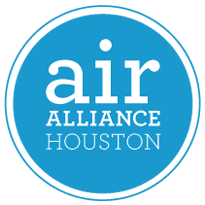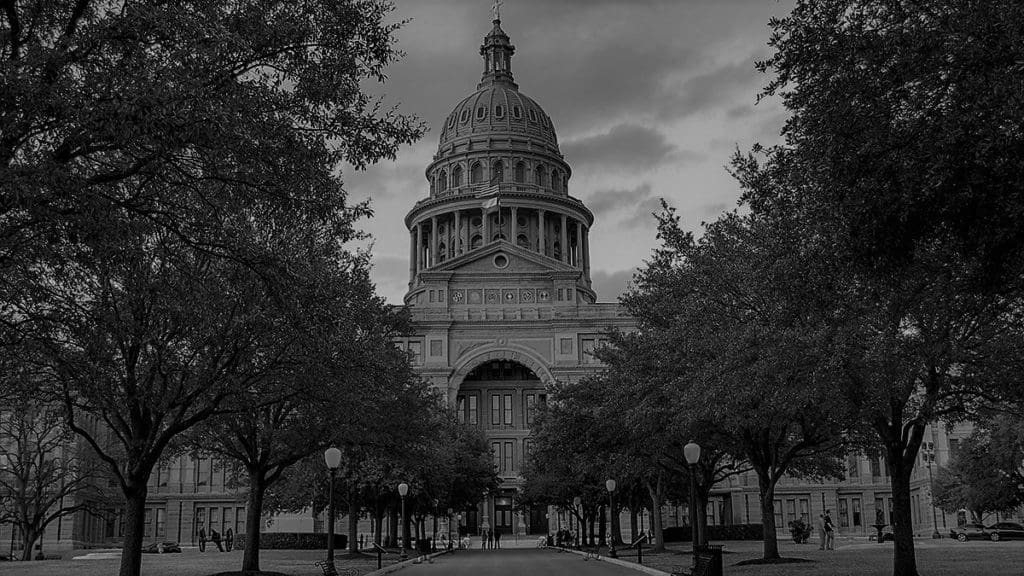There is no way to put this lightly:
The 87th Legislative Session was difficult, and not just in terms of Air Alliance Houston’s legislative priorities. From malicious attempts to restrict voting rights to reactionary attacks on reproductive health to an inadequate response to the deadly Winter Storm Uri crisis, the Texas Legislature failed Texans this year. Pressing issues such as providing healthcare to the poorest of Texans were dismissed in favor of superfluous or downright hateful items like permitless handguns and attacks on transgender children. And, in the midst of the International Energy Agency releasing a report claiming that all new fossil fuel drilling must stop this year in order to reach the Paris Climate Accords’ goal of net zero carbon emissions by 2050, neither chamber seriously considered even the most conservative of climate change planning legislative options.
Transportation bills
GOOD NEWS
HJR 82 would have siphoned off state transportation funds to build more roads for oil and gas extraction sites. It passed the House virtually unanimously, but thankfully died in the Senate without receiving a hearing. We will continue to advocate on the issue of transportation funding so that our legislators better understand the impacts of this type of legislation.
BAD NEWS
HJR 109 would have reallocated transportation funds, constitutionally dedicated to the construction and maintenance of highways to more sustainable transportation alternatives. While most transportation bills do not attract very much attention or widespread support from communities, this bill attracted 20 in-person supporters and 21 registered in favor of the bill. HJR 109 did not pass the House transportation committee.
We would like to say thank you to Transportation Committee member Armando Walle for championing this issue – HJR 109 is inherently tied to the North Houston Highway Improvement Project (NHHIP) which runs through his district.
Listen to testimony from our Transportation Policy Advocate, Harrison Humphreys.
HB 4515 and HB 4520: HB 4515 would require TxDOT to consider alternative project designs if the design has been approved by the local governing body; HB 4520 would change the makeup of the Texas Transportation Commission, TxDOT’s governing body, to better reflect Texans’ interests. These bills, filed by Rep. Penny Morales Shaw, being a direct response to the fight over the North Houston Highway Improvement Project (NHHIP), were heard by the Transportation committee during the same hearing as HJR 109. Neither bill made it out of the House Transportation committee.
HB 4472 by Rep. Landgraf has passed both chambers and is awaiting the governor’s signature. This bill will redirect over a third of funds that would normally go to the Texas Emissions Reduction Plan (TERP) back to the state transportation funding pot to be used for road widening and congestion management. TERP has proven to be an effective program in reducing mobile emissions, providing grants for important programs such as a diesel engine replacement and alternative fueling infrastructure. The funds will now be directed towards the Congestion Management and Air Quality fund (CMAQ), which is most often used by TxDOT to pay for road widening.
Industrial emissions and environmental enforcement bills
GOOD NEWS
SB 900 requires the TCEQ to establish new performance standards for large, above-ground storage tanks. This legislation, authored by Senator Carol Alvarado is a step forward in chemical facility regulation in Texas, but only a step. We appreciate the groundwork that this bill creates and look forward to the next legislative session to further our mission to reduce the public health impacts from air pollution and advance environmental justice.
HB 416 and SB 952 require concrete batch plant permit applicants to include a plot plan outlining the potential placement of the plant and important indicators, like emissions points setback requirements. The Senate version of the bill passed in both chambers and is awaiting the Governor’s signature.
BAD NEWS
SB 2 and SB 3: SB2 implements an overhaul of the ERCOT membership requirements and the same selection process. SB3 “requires power companies and some natural gas companies to make upgrades so their facilities can withstand extreme weather and requires regulators to create an emergency alert system, similar to an Amber alert, for power outages and inclement weather,” according to a Texas Tribune article. SB2 and SB3 were the Legislature’s primary response to the winter storm. While SB2 has generally agreeable changes, coupled with SB3, not enough has been done to prevent another energy disaster. They have passed both chambers and are awaiting the governor’s signature.
HB 1820 increases penalties that TCEQ can levy for a number of different violations. It also directs TCEQ to study the effectiveness of current penalty schemes and to consider penalties based on cumulative effects This legislation by Rep. Zwiener did not pass the House of representatives despite the efforts of AAH and other organizations.
HB 1627 would have given the City of Houston and Harris County each the authority to approve or deny concrete batch plant applications within their respective jurisdictions. The bill was left pending in committee.
Not waiting until the 88th:
The Legislature’s failures this year highlight the ever-growing importance of redoubling our efforts in relation to our critical mission with more legislative outreach not just during the session but in the extensive time before the next session. To that end, we will be announcing soon the selection of our new Advocacy and Legal Director who will work to further our state and federal legislative objectives.
It is important to note that losses at the state level can sometimes be recovered at the local and federal levels. For example, while our priority state transportation funding legislation HJR 109 died in the Texas House, the Biden administration is pushing forward a progressive federal transportation funding bill that may accomplish many of the same goals.
Also, Harris County is actively working towards stopping harmful transportation projects like the North Houston Highway Improvement Project (NHHIP) and the City of Houston is considering developing a centralized transportation department, an effort that will go a long way toward implementing Mayor Turner’s ‘paradigm shift’ in transportation planning.

